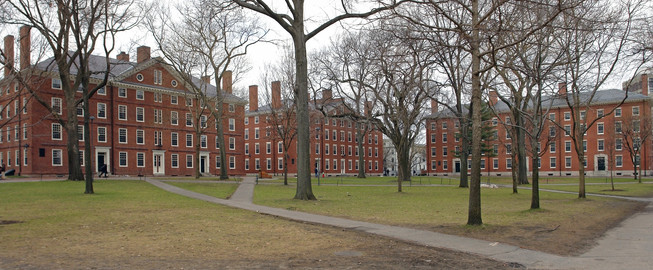Do Prestigious Prep Schools Assure Admission to the Ivy League?
American novelists of the gilded age and early 20th century like Henry James, Edith Wharton, and F. Scott Fitzgerald wrote of the lives and educations of the wealthiest, most well-established families. If, in reading them, you infer that attendance at one of a few blue blood prep schools was a prerequisite for the Ivy League, you would be correct. A diploma from one of these prep schools was more valued than academic excellence in the Ivy League of that era. Family name meant more than merit.
Today, in contrast, almost two-thirds of Harvard students have graduated from public high schools. Nevertheless, it remains true that 5% of Harvard students are from a small subset of seven elite prep schools: Boston Latin, Andover, Stuyvesant, Noble & Greenough, Exeter, Trinity, and Groton. Five percent may not seem like much, but these seven schools represent a mere .023% of the 30,000 public and private high schools in the United States. So the question is still valid: “How instrumental is an elite, exclusive prep school diploma in gaining admission to the Ivy League?”
There are many sound reasons to enroll in a highly selective prep school in addition to those that may confer an advantage in the admissions process to Ivy League and other top-tier schools. Some of these are listed below.
- The level of competition a person encounters affects the quality of their performance. Roger Federer’s tennis won’t get any better by playing against me but it will improve by playing Rafael Nadal. Likewise, a student in a top- tier prep school raises their performance because they are matriculating among highly motivated, elite, college-bound peers who have passed rigorous entrance requirements. Almost all of the graduates of such prep schools go on to attend one of the top 25 colleges and universities in the country.
- Top-tier prep schools have guidance counselors who are employed full time in assisting students with college admissions. As a result of their assistance, elite colleges accept even those students with lower GPA’s than normal. This is because, like IvySelect’s clients, students are encouraged to pursue diverse interests and to excel in them. Every student develops special talents, so every student can be presented as a standout. As a result, high GPA and class rank become less critical as admissions factors.
- Counselors advise high school students to challenge themselves with difficult courses and to do well in them. However, Ivy League admissions officials need to know if the quality of a high school’s education will enable the student to perform up to the rigorous standards of their college. There are applicants for which the quality of their high school is largely unknown, so this variable becomes as much of a factor as GPA itself. Attending a top Ivy League “feeder” prep school resolves any such mystery in the student’s favor because admissions officials know these schools and the quality of their education very well.
- The perceived cultural, social, and symbolic advantages afforded graduates of exclusive prep schools are a kind of “capital” in American society. They provide a range of extraordinary opportunities to graduates throughout their lives that are unavailable to others.
- “Who you know” through the elite prep school experience still matters. However, it is best communicated discreetly. An IvySelect college admissions consultant has the expertise to properly guide these communications.
The question then becomes; if a student attends a prestigious college prep school that confers certain advantages, do they need the assistance of a professional private college admissions consultant like those at IvySelect? We are certain that the answer to this question is an emphatic yes. We will explain why this is absolutely the case in a future post.





